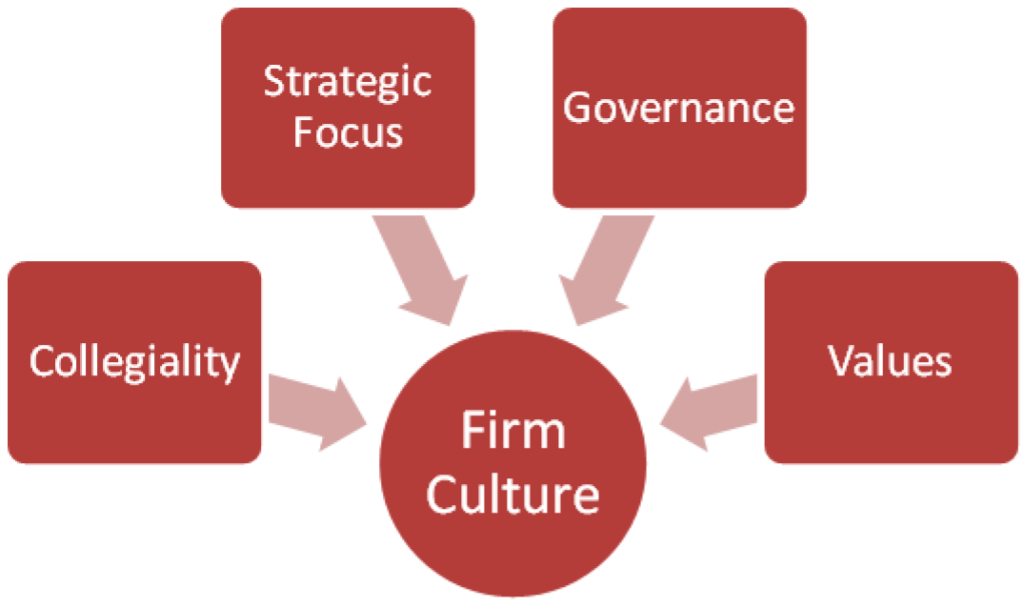Cultural Assessment
As in all professional service businesses, the interrelationships among people working together and the nature of how those people relate to their firm as an institution, differs dramatically among firms. These differences define and influence every aspect of firms’ operations, reputations, and financial success. The details of these interrelationships represent the organization’s culture.
The culture of a firm can have both positive and negative impacts on its business while at the same time raising potential concerns related to certain types of activities including integration of laterals and the ability to successfully merge. Indeed, culture has a role to play in the success of any major change initiative (see “Change Management” service description).
Describing a firm’s culture is difficult, even for people who know the organization intimately. When asked to describe a culture, people typically resort to words like “collegial” or “democratic.” While terms like this may convey a general sense of a culture, greater definition is necessary to begin to clearly differentiate various firms’ cultures and use knowledge of those cultures to contribute to the management of the firms.
Edge International has designed and frequently implemented a Law Firm Cultural Assessment (see “The Cultural Lenses through which we examine Law Firms”). It recognizes discrete differences among individual law firms and provides a more precise vocabulary to describe what those differences represent. Those differences can be categorized into four specific areas:
- Collegiality: The manner in which people within a law firm deal with each other.
- Strategic Focus: The degree to which the firm has a clear identity, both to itself and in relation to other firms.
- Governance: The manner in which the firm deals with its people, and the way that its lawyers and staff deal with the firm.
- Values: The belief systems that represent the collective aspirations of the members of the firm.
As part of the assessment, we take a Law Firm Cultural Inventory – a survey often complemented by a series of focus groups to test the veracity of responses as well as contextualize them.
The results of the assessment are provided in a written report and typically a presentation is made for dissemination to the partnership and, often, the entire firm. They will highlight the particular characteristics of the firm’s culture and how they impact its business and its capacity to implement change.




